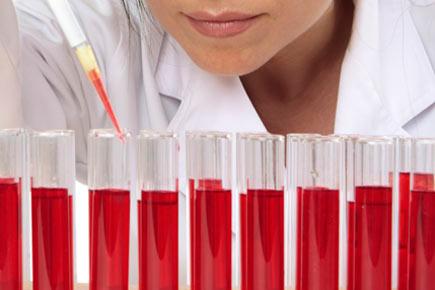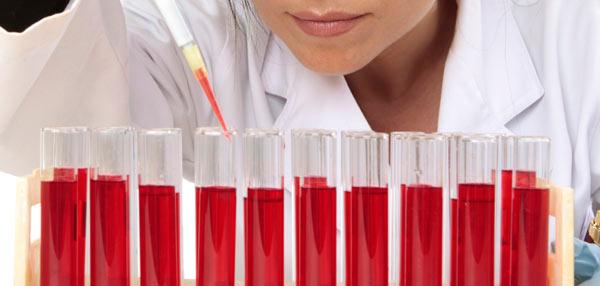A new type of cancer therapy has produced dramatic results in patients with advanced leukaemia in an early-phase clinical trial

advanced leukaemia, leukaemia treatment, medical breakthrough, cancer therapy, new treatment, new drug, leukaemia patients, cancer cure, health & fitness
Washington: A new type of cancer therapy has produced dramatic results in patients with advanced leukaemia in an early-phase clinical trial.
ADVERTISEMENT
Approximately 15 percent of acute myeloid leukemia patients have a mutated form of the IDH2 gene.

Representational picture
This mutation prevents immature white blood cells from developing into healthy, infection-fighting cells which accumulate, crowd out normal cells, and lead to the development of acute leukaemia.
AG-221 is an investigational drug that blocks the mutated IDH2 protein, effectively allowing these immature white blood cells to develop normally.
"This drug has the potential to transform the treatment of leukemia," said lead study author Eytan M. Stein, medical oncologist at the Memorial Sloan Kettering Cancer Center in the US.
"We have not yet reached the maximum tolerated dose and patients are responding dramatically. More research is needed, but I am optimistic that this drug will fundamentally alter the natural history of IDH2-mutant leukemia and other hematologic malignancies," Stein added.
Instead of inhibiting a mutation that leads to cancer cell growth, the new drug works by targeting a gene that can transform cells into becoming healthy again.
As part of the study, 45 patients with IDH2-positive leukaemia or haematologic malignancies were able to complete one cycle of therapy and were evaluated for efficacy.
All patients had advanced disease that had relapsed or was unresponsive to prior therapy.
Patients received up to 150 mg or 200 mg of AG-221 once or twice daily in 28-day cycles.
The overall response rate was 56 percent; 15 patients (33 percent) achieved complete remission and 10 patients (22 percent) partial remission.
The condition of 17 patients (38 percent) became stable.
There were no treatment-related deaths.
The findings were presented at the 56th annual meeting of the American Society of Hematology.
 Subscribe today by clicking the link and stay updated with the latest news!" Click here!
Subscribe today by clicking the link and stay updated with the latest news!" Click here!






